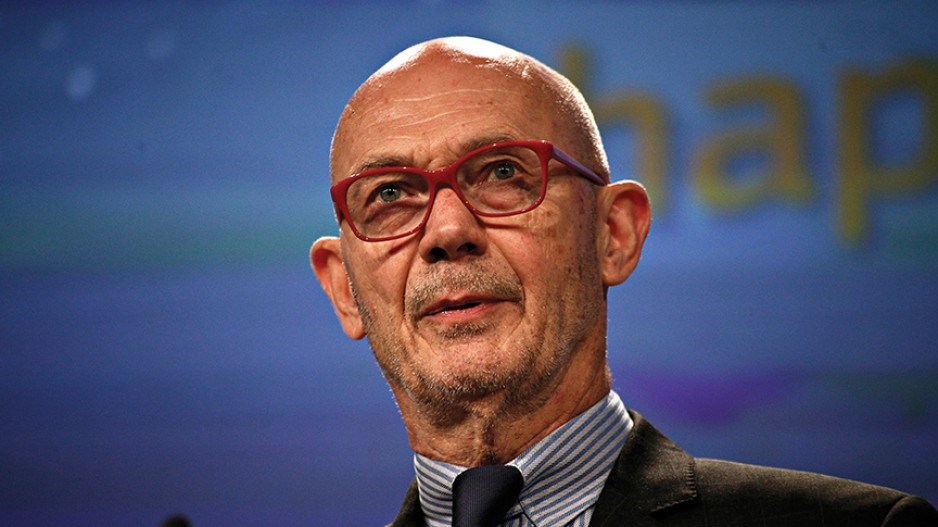The global market offers the chance to create a new, open trading system for the digital economy as e-commerce emerges across the world – but only if Canada and its partners can master how to make compatible “the three kingdoms” of the digital scene in the coming years.
That was the view of former World Trade Organization (WTO) director general Pascal Lamy during his appearance at a unique seminar conference hosted by the Pacific Economic Cooperation Council (PECC).
The conference, organized by the PECC committees in France and Canada and hosted in Vancouver in late October, was meant to spur expert discussion on the challenges posed by protectionist movements in places like the United States to the global free-trade order as established by the WTO. But discussions also delved into the opportunities, and several experts, including Lamy, noted the urgent need of countries in the Asia-Pacific to figure out how to overcome the already apparent barriers to creating a relatively free global economic system with three dominant players.
“The view in the future of that regime is that China looks at data as something that the state must control,” Lamy said. “The U.S. views data as a market in which you can buy and sell. The EU, meanwhile, looks at data as something that is fundamental, individual and a human-right property. It’s not the same philosophical approach as they have for things like automobiles, shoes or other products, which is much more flat across all three markets.”
Lamy, who is chair of the French PECC committee, described a digital-economic landscape divided among the United States, China and the European Union as “not ideal.”
He said the division of the markets, if a proper solution isn’t found, would create an “inefficient” trading system that would keep the public from benefiting from the next projected revolution of global economics.
“How do we organize the interactivity of different data regimes that are structured along different cultural premises?” He continued. “That’s something APEC [the Asia-Pacific Economic Cooperation forum] needs to work on, because there are members that will move towards any of the three major players, and proper connectivity will not happen without some serious thought.”
PECC, a top-level international think tank that promotes discussions on Asia-Pacific regional policies, was a key driver in the creation of APEC in 1989.
Former federal deputy foreign minister Don Campbell, co-chair of PECC and chair of the Canadian PECC committee, said that while Canada will remain heavily committed in the U.S. market, with 75% of Canadian exports going south of the border, the White House administration under Donald Trump has been a “wake-up call” for Canada to diversify its trade strategy in light of tariff pressures and other moves limiting access to U.S. consumers for foreign goods.
Campbell, who worked extensively on the original North American Free Trade Agreement as deputy minister of international trade from 1989 to 1993, said APEC has quietly done significant good in promoting trade in the region in its three-decade existence. That’s despite challenges such as the integration of the digital market, as well as other trade obstructions such as non-tariff barriers, he added.
“I think one of the not-so-well-publicized successes of APEC has been the significant work done on trade facilitation,” he said. “All you have to do is go to the Vancouver International Airport, and you will see a sign for APEC business visas. Business people anywhere in the APEC are set in a different lineup and treated with preference, frankly, and that’s just a small example of what has been done to ease trade.”
Lamy agreed, noting that the main benefits of an APEC conference is that the tone is conciliatory and voluntary. That atmosphere – shared by PECC – is important because most of the trade barriers seen today in Asia are actually non-tariff in nature, often surrounding regulatory standards for health and other issues.
That, Lamy said, is where APEC could shine the most in facilitating global trade.
“The problem with non-tariff barriers is that you can’t get rid of them the same way you can with tariff barriers,” he said. “The way you get rid of tariff barriers is very simple; you take the tariffs to zero, and the job is done. On non-tariff barriers, no one is going to be able to get rid of a country’s health safety standards because you have to protect your citizens.
“But clearly it can obstruct trade, and it is much more complex because you are addressing the discrepancies between different regulatory regimes. The key is to get regulations to the point where they are relatively the same between countries.”
Lamy further urged Canadians to look to “like-minded partners” such as the European Union to take on global trade issues, especially since friction between China and the U.S. could mean the so-called “middle power” states like Canada need to seek alliances in the global order to make their voices heard on trade issues.
“What unites us is the belief that open trade is the way to go, and for a country like Canada, that fact may be more obvious than it is in places like the U.S., China and the EU,” he said, noting countries with smaller GDPs and more dependent on international trade are often the most vocal members in the WTO. •




